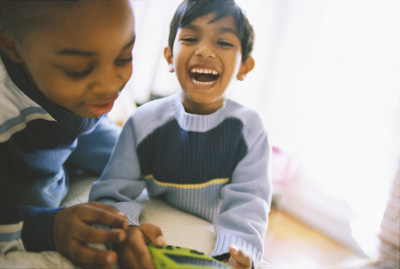I’ve always been more comfortable around adults than children. When I’m talking to or trying to play with children, I come off awkward and clumsy. Sometimes they even give up and walk away from me, which suits me just fine.

Until recently, I didn’t feel a need to understand how children “work”. But working in Princess Margaret’s Patient & Family Library made me change that. Oftentimes, people come into the library looking for help on how to talk to their children about cancer in the family. At first I would just stare blankly at them, leaving my colleague to swoop in to my rescue.
After this happened a few times, I realized I had homework to do. I began looking through all of our resources for parents and families, from pamphlets and books to hospital services and community programs. The information was very new to me and the learning experience was fascinating.
Looking at the cover of the first pamphlet I picked up, I thought to myself:
“If a cancer diagnosis can stun and flip the world upside down for an adult, how can we expect children to handle it?”
But I was surprised to learn that adults should talk to children about cancer as soon as possible. Many resources say that children who aren’t told about what’s happening may start to take the family disturbance in their own way. For example, children may start to blame themselves for what’s happening to their sick parent. Even younger children who may not fully understand what is happening will sense that something is wrong.
Also, talking to children early prevents them from learning of the diagnosis from another source that may have wrong or incomplete information. Many professionals suggest that families with more than one child talk to the whole family together. Although it is necessary to tailor messages to each child to ensure they understand (particularly for younger children), telling your children together encourages them to go to each other for support if they can’t or don’t feel like going to you.
Seeing things from the perspective of a child helped me understand why it’s important to talk to children early on about cancer. In fact, any major illness or event can affect children. Keeping open communication about what’s happening will include them, and help them understand and cope.
Are you caring for a child who is affected by cancer in the family? Here are some resources that may help:
